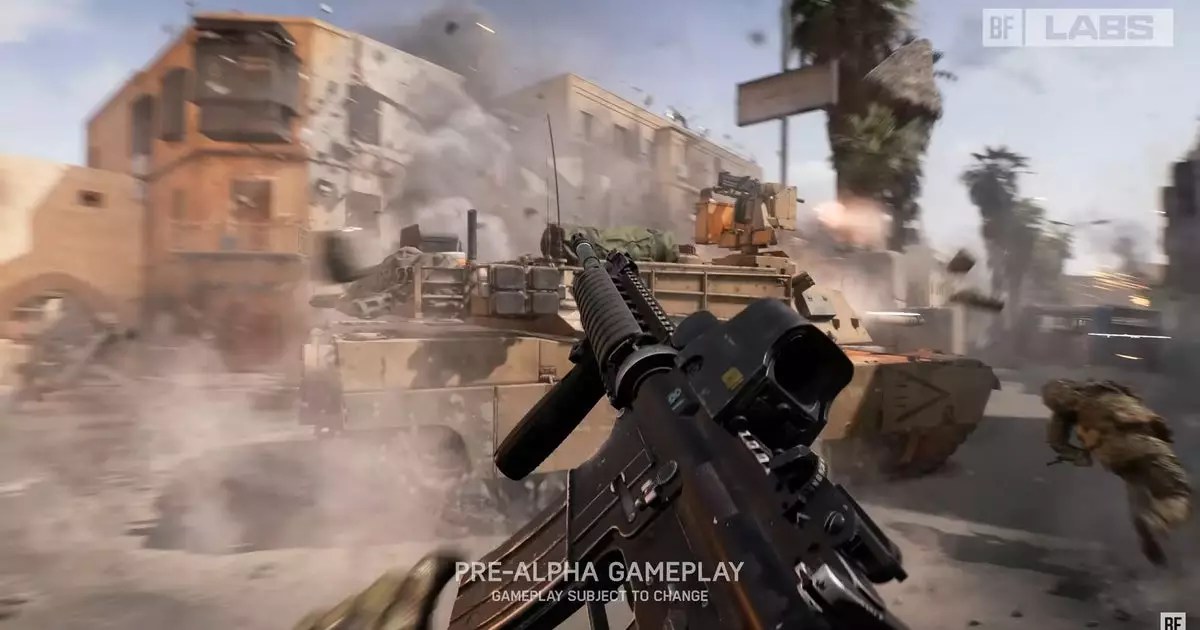As fans eagerly await the next installment in the Battlefield franchise, the recent promotional video for Battlefield 6, from developer EA, has ignited expectations and discussions across the gaming community. The explosive content featured prominently in the video—explosions, gunfire, collapsing buildings—evokes the franchise’s traditional high-octane energy but also raises questions about the game’s evolution. Producers discussed their ambitions to “level up” the “core experience,” but one can’t help but notice the lingering elements of the traditional gameplay loop rooted in creating chaos with weapons like rocket-propelled grenades. This familiar formula invites nostalgia yet highlights a critical question: will this installment offer something new or merely refine the existing recipe?
A noteworthy aspect of the video is the involvement of multiple studios—Dice, Criterion, Motive, and Ripple Effect—each contributing their unique expertise. While diverse input can foster innovation, it can also lead to disjointed execution. The announcement of “Battlefield Labs,” a new initiative allowing players to engage in playtesting, serves as a double-edged sword. While community input could enhance development, it may also reflect a lack of confidence in the current game’s direction. The comparison with Full Circle’s ongoing testing for their Skate title raises similar concerns; is this approach an admission that the studios are still ironing out key gameplay features?
It is essential to acknowledge the broader corporate dynamics at play. The shifting roles of studios involved, particularly Criterion’s postponement of new developments for Need for Speed, paints a complicated picture. The withdrawal of Ridgeline Games from the equation after a short lifespan adds an additional layer of intrigue, leaving fans to wonder about the internal conflicts that may affect the game’s vision. The promotional video seems to gloss over these tensions, instead framing a united front. Can such a collective really deliver a cohesive gaming experience amidst apparent strategic realignments?
As the release approaches, the community’s expectations are a mixed bag of excitement and skepticism. The fact that EA is calling for public engagement through playtesting suggests a willingness to listen to feedback; however, it also raises concerns about the transparency and maturity of their game development process. Involving players at this stage implies reliance on the community to catch errors or suggest improvements that the developers may have missed. Does this mean that the game isn’t quite ready, or are they genuinely seeking collaboration?
The anticipation surrounding Battlefield 6 encapsulates the struggle between innovation and tradition within the video game industry. While the promotional video focuses on elevating the player experience, one cannot ignore the concerns tied to the collaborative studio nature and the potential risks of overwhelming the foundational elements that have defined the franchise. The love for the series is palpable; fans yearn for evolution that respects its roots while daring to carve a new path. As the countdown to release continues, players are left holding their breath, cautiously optimistic about the journey ahead in this war-torn universe.


Leave a Reply